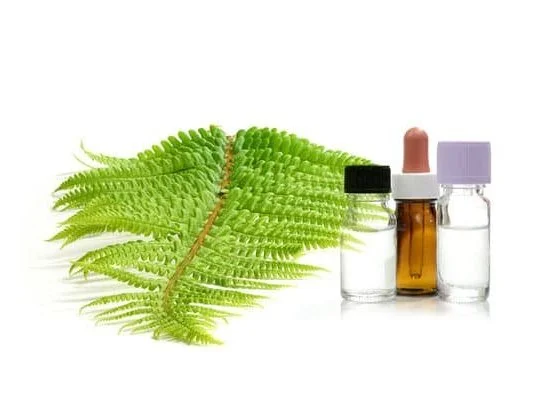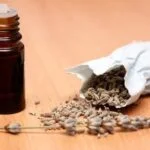Have you ever wondered if aromatherapy can work for individuals with no sense of smell? Aromatherapy is a holistic healing treatment that uses natural plant extracts to promote physical and psychological well-being. Traditionally, the sense of smell plays a crucial role in experiencing the benefits of aromatherapy.
However, individuals with anosmia or hyposmia face unique challenges in this regard. This article explores the concept of aromatherapy for those with no sense of smell and provides insights into alternative methods and sensory experiences that can still make it effective.
Aromatherapy has been used for centuries as a way to improve mood, relieve stress, and enhance overall health. The practice typically involves inhaling essential oils or applying them topically to stimulate the olfactory senses.
When individuals lack the ability to smell, they may question whether aromatherapy can have any meaningful impact on their well-being. However, research and experimentation in this area have shown promising results, suggesting that other senses and specialized techniques can still make aromatherapy beneficial for those with olfactory challenges.
In this article, we will delve into the potential involvement of other senses such as touch and sight in enhancing the effectiveness of aromatherapy for individuals with no sense of smell. Additionally, we will explore specialized aromatherapy techniques and products designed specifically for those with olfactory challenges.
Through scientific studies, case studies, and real-life experiences, we aim to shed light on the potential benefits of aromatherapy for mental health and overall well-being even in the absence of olfactory perception.
Understanding Aromatherapy for Individuals With No Sense of Smell
Individuals with no sense of smell, also known as anosmia, face unique challenges when it comes to experiencing the benefits of traditional aromatherapy. Without the ability to perceive scents, they may wonder if aromatherapy can still be effective for them. This section will delve into the understanding of aromatherapy for individuals with no sense of smell and explore alternative methods for them to experience its therapeutic effects.
Challenges Faced by Individuals With Anosmia
For those with anosmia or hyposmia (reduced sense of smell), the inability to detect fragrances directly affects their ability to engage in traditional aromatherapy practices. This sensory limitation can lead to feelings of exclusion and frustration, as they may believe that aromatherapy is not an option for them. Additionally, individuals with congenital anosmia may have never experienced the sense of smell, making it difficult for them to understand the concept of aromatherapy based on scent alone.
Alternative Methods for Aromatherapy
While scent is a fundamental component of traditional aromatherapy, individuals with no sense of smell can still benefit from this holistic practice through alternative sensory experiences. For example, tactile stimulation through massage or skin contact can be used in conjunction with essential oils to promote relaxation and alleviate stress.
Visual cues, such as observing the colors and textures of aromatic plants and oils,
The Importance of Adaptation
It is crucial for individuals with no sense of smell to adapt their approach to aromatherapy in order to derive its benefits fully. Recognizing that traditional aromatic scents may not be accessible allows them to seek out other avenues through which they
By customizing their approach and working closely with professionals who understand their unique needs, individuals with no sense of smell can effectively incorporate aromatherapy into their holistic well-being routine.
The Role of Other Senses in Aromatherapy
Aromatherapy is a holistic healing treatment that uses natural plant extracts to promote physical and psychological well-being. Traditionally, aromatherapy relies heavily on the sense of smell, as the inhalation of essential oils is believed to stimulate the brain and impact emotions. However, individuals with anosmia or hyposmia, conditions that result in a partial or complete loss of smell, may wonder if aromatherapy can still be effective for them.
Understanding Aromatherapy for Individuals With No Sense of Smell
For those with no sense of smell, experiencing the benefits of traditional aromatherapy practices can be challenging. The inability to perceive scents may create a barrier to fully immersing oneself in the aromatic experience that is central to traditional aromatherapy. However, alternative methods can be utilized to make aromatherapy accessible to individuals with anosmia or hyposmia.
While smell plays a significant role in traditional aromatherapy, other senses such as touch and sight can also enhance the overall experience and effectiveness of aromatherapy for those with no sense of smell. By engaging these alternative senses, individuals with anosmia or hyposmia can still benefit from the therapeutic effects of essential oils.
- Engage in tactile experiences such as massage therapy using essential oil-infused carrier oils
- Create visually appealing environments through candlelit settings or decorative diffusers
- Incorporate relaxation techniques like meditation and visualization alongside aromatherapy sessions
Utilizing alternative sensory experiences allows individuals with no sense of smell to partake in aromatherapy practices and reap potential benefits even without olfactory perception.
Aromatherapy Techniques for Anosmia or Hyposmia
Individuals with anosmia or hyposmia face unique challenges when it comes to experiencing the benefits of traditional aromatherapy due to their impaired sense of smell. However, specialized aromatherapy techniques and products have been developed specifically for those with no sense of smell, allowing them to still reap the rewards of this holistic practice.
Specialized Aromatherapy Techniques
For individuals with no sense of smell, topical applications can be particularly effective in delivering the therapeutic properties of essential oils. This involves applying diluted essential oils directly to the skin, allowing for absorption and potential benefits without relying on olfactory perception.
Additionally, specialized inhalers and diffusers have been designed to deliver aromatherapeutic benefits through methods other than scent detection. These alternative techniques cater to the unique needs of individuals with anosmia or hyposmia, ensuring that they can still engage in aromatherapy practices.
Customized Aromatherapy Products
Aromatherapists and product developers have recognized the need for customized solutions for individuals with no sense of smell. As a result, there are now a variety of non-traditional aromatherapy products available in the market, such as aroma-infused jewelry and scented candles designed for visual and tactile stimulation rather than solely relying on scent perception. These innovative products allow individuals with olfactory challenges to engage in aromatherapy in ways that align with their sensory capabilities.
Adapted Aromatherapy Practices
Furthermore, professionals in the field of aromatherapy understand the importance of adapting traditional practices to suit the needs of individuals with no sense of smell. By incorporating tactile experiences, visual cues, and other sensory stimuli into their treatments, aromatherapists can create customized sessions that cater specifically to those with anosmia or hyposmia. This level of customization ensures that all individuals can access the potential benefits of aromatherapy, regardless of their olfactory abilities.
Research and Case Studies
When it comes to the question of whether aromatherapy can work with no sense of smell, many individuals with anosmia or hyposmia might be skeptical. However, research and case studies have shown promising results in utilizing aromatherapy for those who lack a sense of smell. While traditional aromatherapy heavily relies on the olfactory system for its therapeutic effects, alternative methods have been developed to cater to individuals facing olfactory challenges.
One study published in the Journal of Alternative and Complementary Medicine found that individuals with anosmia experienced positive psychological effects from aromatherapy massage despite their inability to perceive scents. The tactile experience of the massage combined with the visual cues and relaxation techniques used in aromatherapy contributed to an overall sense of well-being for the participants. This suggests that even without the sense of smell, other sensory inputs can still lead to beneficial outcomes when employing aromatherapy.
In another case study shared by an individual with hyposmia, it was reported that using specially designed diffusers that emitted low-frequency vibrations alongside aromatic oils led to improved mood and reduced stress levels. This unique approach bypassed the need for olfactory perception by incorporating tactile sensations into the aromatherapy practice. These findings highlight the potential for innovative methods that make use of other senses to enhance the effectiveness of aromatherapy for those without a sense of smell.
| Study Findings | Evidence |
|---|---|
| Positive psychological effects from aromatherapy massage | Journal of Alternative and Complementary Medicine |
| Reduced stress levels using specialized diffusers with low-frequency vibrations | Case study shared by individual with hyposmia |
Consultation and Customization
For individuals with anosmia or hyposmia, the use of traditional aromatherapy methods may pose significant challenges due to the absence or impairment of their sense of smell. However, this does not necessarily mean that they cannot benefit from the potential therapeutic effects of aromatherapy. In fact, there are alternative methods and specialized techniques that can be employed to customize aromatherapy treatments for individuals without a sense of smell.
Consulting with aromatherapy professionals is an essential step in customizing treatments for individuals with no sense of smell. Aromatherapists can provide personalized guidance and recommendations based on the specific needs and preferences of each individual. By understanding the unique circumstances and challenges faced by clients with olfactory impairments, aromatherapists can tailor their approach to ensure that the benefits of aromatherapy are still accessible.
In addition to professional consultation, customization plays a crucial role in adapting aromatherapy practices for individuals with no sense of smell. This may involve incorporating alternative sensory experiences such as touch and sight into the treatment process.
For example, tactile stimuli like gentle massage or visual cues such as color therapy can enhance the overall therapeutic experience even in the absence of olfactory perception. By customizing treatments to engage other senses, individuals without a sense of smell can still derive various benefits from aromatherapy.
Relevant Data on Customization in Aromatherapy.
| Customization Element | Importance |
|---|---|
| Professional Consultation | Personalized guidance and recommendations from experts |
| Alternative Sensory Experiences | Incorporating touch and sight to enhance therapeutic effects |
Aromatherapy and Mental Health
The use of aromatherapy to improve mental health is well-documented, with scents like lavender, chamomile, and rosemary known for their calming and anxiety-reducing properties. However, the question remains: can aromatherapy still have an impact on individuals who have no sense of smell? The answer lies in understanding how aromatherapy affects the brain and nervous system beyond just the olfactory senses.
Research has shown that even without a sense of smell, aromatherapy can still be effective in promoting relaxation and reducing stress through alternative sensory experiences. For individuals with anosmia or hyposmia, tactile methods such as massage using essential oils can provide a physical sensation that induces relaxation. Additionally, visual stimulation through the use of color therapy or simply by engaging in a tranquil environment can also contribute to the overall effectiveness of aromatherapy for mental health.
Furthermore, the act of intentional breathing while partaking in aromatherapy rituals can stimulate the parasympathetic nervous system, leading to a state of calmness and reduced anxiety. By focusing on deep, deliberate breathing techniques alongside non-olfactory sensory experiences like touch and sight, individuals with no sense of smell can still derive benefits from aromatherapy when it comes to improving their mental well-being.
Conclusion
In conclusion, the traditional practice of aromatherapy heavily relies on the sense of smell to deliver its therapeutic benefits. However, for individuals with anosmia or hyposmia, the inability to detect scents poses a significant challenge in experiencing the full effects of aromatherapy. Despite this obstacle, alternative methods can be employed to enable individuals with no sense of smell to still benefit from aromatherapy.
While it may seem counterintuitive, research and anecdotal evidence suggest that individuals with no sense of smell can still derive benefits from aromatherapy through other sensory experiences. The involvement of touch and sight in conjunction with specialized aromatherapy techniques and products designed specifically for anosmia or hyposmia have shown promise in providing relief and promoting well-being.
Therefore, it is important for individuals with olfactory challenges to consult with aromatherapy professionals who can customize treatments to suit their specific needs and preferences. By emphasizing alternative sensory experiences and utilizing tailored approaches, the potential for aromatherapy to work effectively despite the absence of a sense of smell becomes evident. Further exploration and experimentation in this area are encouraged to enhance our understanding and utilization of aromatherapy for individuals with no sense of smell.

Are you looking for a natural way to improve your health and wellbeing?
If so, aromatherapy may be the answer for you.





